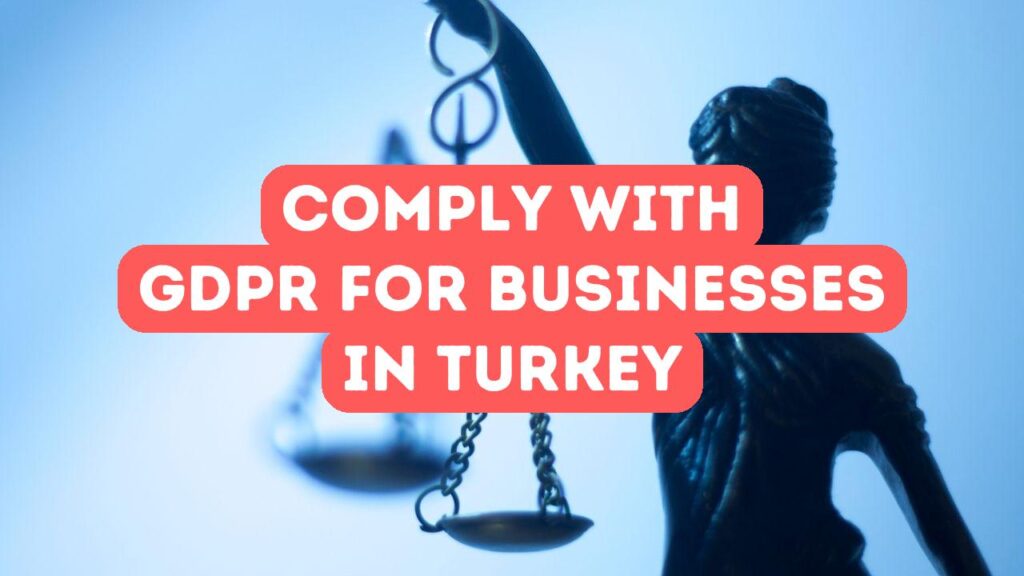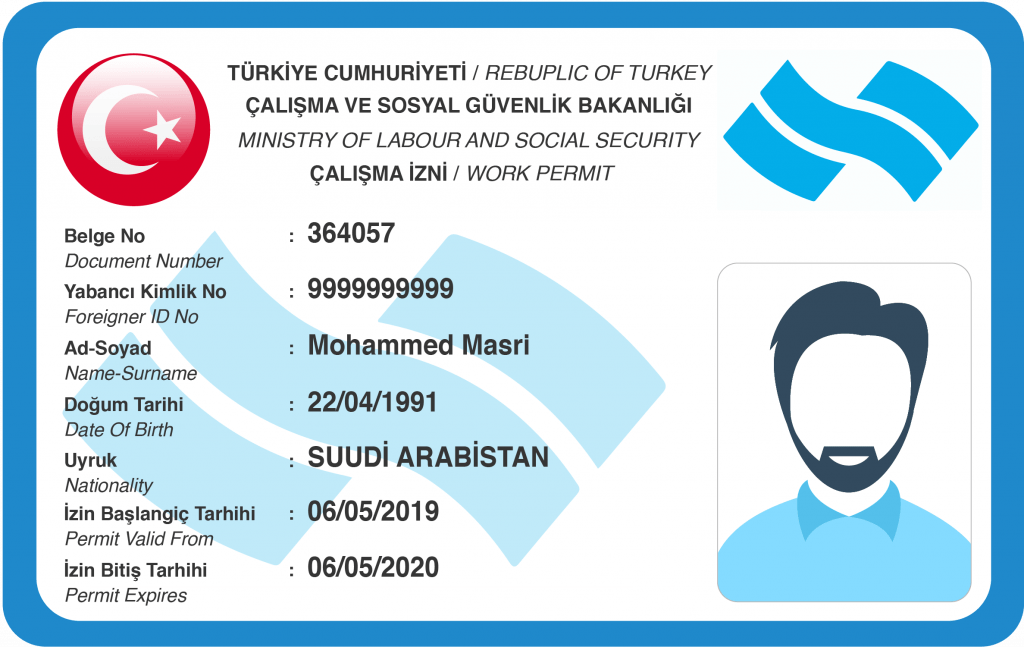Navigating the intricacies of GDPR compliance in Turkey is crucial for businesses aiming to stay on the right side of the law. The consequences of non-compliance can be daunting, from hefty fines to damaged reputations. Adhering to GDPR guidelines isn’t just about ticking boxes; it’s about safeguarding personal data in a way that aligns with both international standards and Turkey’s privacy laws. Data protection in Turkey is fundamental to building trust with your customers and ensuring seamless operations. Here’s the golden rule—understand the regulations thoroughly and implement them rigorously. Whether you’re a seasoned professional or a newcomer, these GDPR tips will provide you with a solid foundation. Think of it as fortifying your business with a shield against potential pitfalls. The journey toward complete GDPR compliance Turkey may seem challenging, yet with clarity and commitment, it’s entirely achievable. Remember, knowledge is power, and preparedness is your best ally.
Understanding GDPR Principles in the Context of Turkish Law
GDPR compliance in Turkey begins with grasping the fundamental principles of the regulation and aligning them with Turkey privacy laws. It’s akin to weaving through the constant changes in data protection Turkey requires. First, always remember that transparency and consent are your guiding stars. Inform users how their data will be used, ensuring clarity in every step. Protection of personal data sits at the heart of GDPR guidelines, demanding vigilance and precision. Follow the principle of purpose limitation, only collecting data for legitimate needs, and steer clear of unnecessary details. Data minimization is crucial; only gather what you need. Security, often overlooked, demands a robust approach. Shield that data like a knight with armor. Equipped with these GDPR tips, businesses can navigate the roadmap of GDPR compliance Turkey confidently, ensuring trust and safeguarding reputation are never compromised. Always be a step ahead; proactive compliance is the best strategy.
Understand that GDPR compliance Turkey isn’t just a standalone venture but a fusion of GDPR guidelines with Turkey privacy laws. It’s about creating a finely tuned orchestra of regulations ensuring harmony in data protection Turkey. Picture transparency, consent, and accountability as your lead conductors. Every business move should resonate with these principles, like a melody guiding your data practices. Embrace the GDPR tips to streamline processes—opt for clarity in communication, make consent tangible, and fortify user rights as the star performers. Turkish regulations accentuate the need for respecting cultural nuances while retaining the universal GDPR essence. Achieving this balance is no easy feat, but necessary. Think of your business operations as crafting a robust puzzle, each piece representing a unique requirement of the GDPR compliance Turkey landscape. When all is aligned, the picture becomes complete—a business standing firm and compliant, ensuring trust, and respect remain unwavering.
Understanding GDPR principles within the Turkish legal framework requires a keen eye and adaptive mindset. Businesses must weave GDPR guidelines into Turkey privacy laws, much like mixing colors for the perfect shade. A vital first step is comprehending data subject rights, ensuring complete access and rectification capabilities. No element should be left dim or obscure; illuminating these rights is paramount. Consent underpins every transaction, fostering trust and transparency with clear intentions. The GDPR tips for active engagement—such as appointing a Data Protection Officer—serve as indispensable allies in this quest. They guide through the labyrinthine landscape of GDPR compliance Turkey. It’s crucial to adapt global standards to local customs, treating each law as threads in a finely woven Turkish tapestry. Proper emphasis on data protection Turkey is pivotal; this vigilance fortifies against unwanted regulatory surprises, anchoring businesses firmly in compliant waters. Hence, a thorough understanding not only meets compliance but seals customer loyalty.
Key Steps for Ensuring Compliance in Turkish Businesses
First and foremost, understanding GDPR guidelines and how they intersect with Turkey’s privacy laws is critical. Start by conducting an internal audit focused on data protection Turkey. This audit will map out how personal data flows through your business, helping identify any non-compliance risks. Educating your team is equally essential; regular training sessions on GDPR compliance Turkey can address common pitfalls and reinforce best practices. Equip your business with the tools and processes needed for managing personal data meticulously. Consider hiring a dedicated data protection officer if your business size and nature demand it. Implementing these GDPR tips proactively will not only safeguard personal data but also protect your company from potential legal traps. Staying informed and responsive to changes in regulations ensures that your business remains agile and compliant. With these steps, you can maintain smooth operations and foster customer trust in the Turkish market.
Establishing a solid framework for GDPR compliance Turkey starts with a clear grasp of data protection Turkey. Begin by refining your data handling procedures to align seamlessly with GDPR guidelines and Turkey privacy laws. It’s vital to document every step, ensuring a trail that demonstrates compliance. Create a transparent data processing agreement with partners and vendors to bolster your protection net. Regularly review these agreements as part of your ongoing GDPR tips. Encrypting personal data adds an extra layer of security, providing peace of mind to both customers and stakeholders. Implement a robust system for breach management, ensuring that any incidents are swiftly reported and addressed. It’s not just about ticking compliance boxes; it’s about embedding privacy norms into your business culture. By prioritizing these practices, Turkish businesses can operate confidently within the legal frameworks while truly safeguarding personal data. Remember, diligent preparation is key to navigating these regulatory waters smoothly.
Regular audits are paramount in ensuring GDPR compliance Turkey isn’t just theoretical but a reality in your day-to-day operations. Conduct these audits with an eagle eye, reviewing both the obvious and hidden aspects of data protection Turkey. Regularly update records and make any necessary changes in line with evolving GDPR guidelines. Keep a keen lookout for discrepancies between your procedures and Turkey privacy laws, making adjustments promptly. Involve your entire team in these compliance efforts; collective vigilance builds a more robust framework. Schedule quarterly reviews of your data management practices to revisit and refine them. Use these reviews to identify new GDPR tips that could enhance your strategy. It’s crucial to maintain open lines of communication with regulators, ensuring you’re always in the loop regarding any updates or shifts in Turkey privacy laws. By weaving GDPR compliance Turkey into your regular business routine, you fortify your organization against unforeseen challenges, ensuring a resilient operation.
Navigating GDPR Challenges and Opportunities in Turkey
Ensuring GDPR compliance in Turkey is both a challenge and an opportunity. Businesses face the task of aligning with GDPR guidelines while respecting Turkey privacy laws, a dual responsibility that can open doors to trust and credibility. Picture this: you’re at a crossroads where compliance meets competitive edge. By embracing GDPR tips, you can transform compliance from a mere task into a strategic advantage. Data protection Turkey isn’t just an obligation—it’s a bridge to customer loyalty and a safeguard for your reputation. The potential pitfalls are real, yet so are the opportunities to leverage GDPR for growth. Embracing these regulations and adopting a proactive approach isn’t just about avoidance of penalties; it’s about creating a robust framework for sustainable business practices. Those who adapt swiftly gain not only a regulatory shield but also a compass guiding them to new horizons in the market.
Understanding the specific GDPR challenges that businesses encounter in Turkey is essential for leveraging compliance to benefit your operations. The dual landscape of GDPR compliance Turkey and Turkey privacy laws can seem like a tightrope walk, but with informed strategies, every step can lead to progress. Think of data protection Turkey as a fortress—not just defense, but also a foundation for building consumer trust. Familiarizing yourself with GDPR guidelines can illuminate your path, transforming potential roadblocks into stepping stones toward market growth. Remember, GDPR tips aren’t just theoretical advice; they’re practical tools for navigating complexity. Grasping this opportunity can set you apart from competitors who might stumble in the same terrain. In the pursuit of GDPR adherence, opportunities lie hidden in plain sight, revealing themselves to those who approach each obstacle as a chance to innovate and enhance their business strategies.
Embracing the challenges of GDPR compliance Turkey requires a keen focus on data protection Turkey while balancing the nuances of Turkey privacy laws. This delicate endeavor can position your business at the forefront of privacy excellence. GDPR guidelines serve not only as compliance mandates but also as a roadmap to elevate your brand. Imagine GDPR tips as keys unlocking novel strategies, enabling you to meet regulatory demands and exceed expectations. As businesses navigate this labyrinth, they must stay vigilant; each obstacle presents an opportunity to refine their approach. Relying on GDPR tips can transform compliance pressures into innovative business ventures. In this competitive landscape, those who master GDPR compliance Turkey and seamlessly integrate data protection Turkey practices can secure a dominant market position. Therefore, treating GDPR guidelines as allies can unlock growth potential, offering businesses the chance to shine through responsible stewardship of data.






